Our state-of-the-art resources provide your organisation with the tools to drive innovation and deliver impactful results.
Our high-tech laboratories, virtual-reality (VR) hub, bioinformatics suites, and collaboration spaces are designed to foster innovation, training, and partnerships, offering a one-stop solution for businesses aiming to enhance their research and development capabilities.
Access industry-leading technologies such as mass spectrometers, next-generation sequencing systems, omics, bioinformatics expertise, microbial and mammalian bioreactors, and high-performance confocal microscopy.
Benefit from the support of leading academics and researchers at the forefront of bioscience and healthcare innovation.
Whether you're developing new products, advancing research, or scaling up processes, our facilities are tailored to meet your unique business needs.
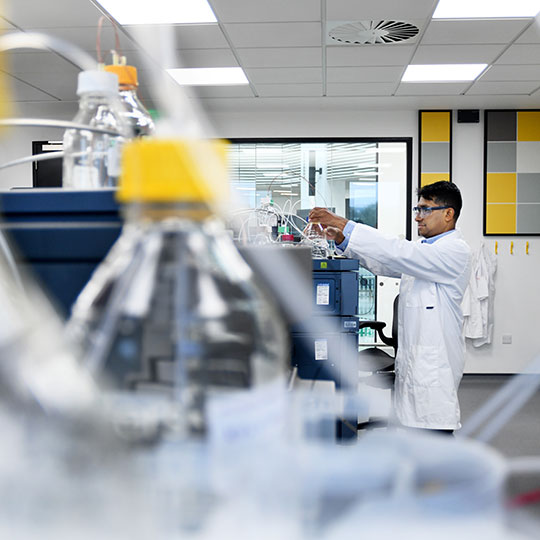
Equipped with high-performance chromatography and mass spectrometry, this lab enables precise analysis in proteomics, metabolomics, and biopharmaceuticals. Ideal for businesses needing molecular profiling, it supports drug development, environmental monitoring, and biochemical research.
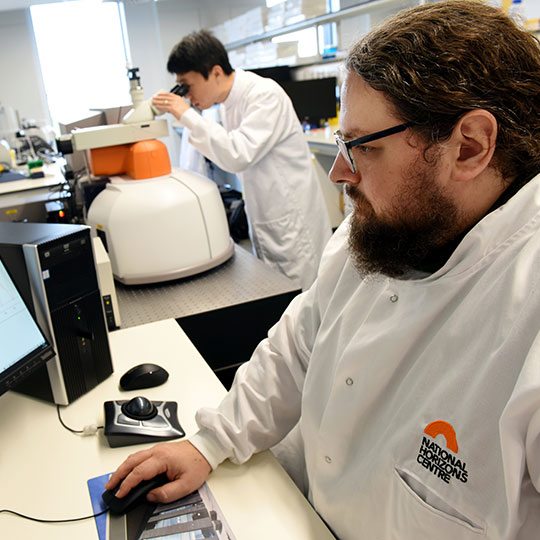
This lab features advanced microscopy and flow cytometry for high-resolution cellular analysis. It enables research in immunology, oncology, and infectious diseases, offering tools to study cell structures, therapeutic efficacy, and cellular interactions in real-time.

High-spec workstations in this lab enable large-scale data analysis for genomics, diagnostics, and personalised medicine. It helps businesses interpret complex data sets and visualise insights using advanced bioinformatics and VR technology.
The VR suite provides immersive training environments for bioprocessing, medicines manufacturing, and soft skills. VR provides near-real-life experiences of lab environments, and helps businesses bridge the skills gap by offering scalable and consistent training programmes.
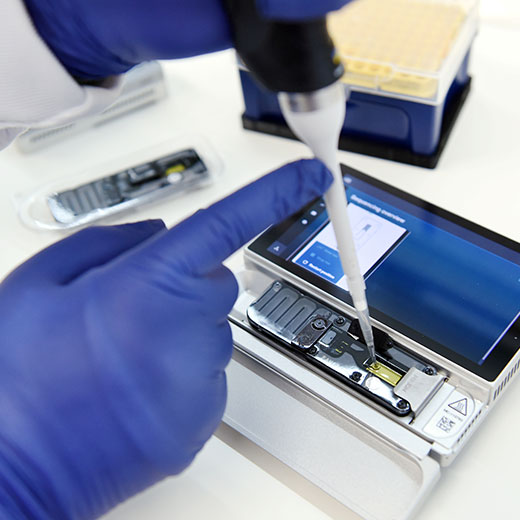
With mass spectrometry and imaging for proteomics, genomics, and metabolomics, this lab supports molecular analysis and live cell imaging. Businesses can benefit from efficient sample processing, quality control, high-throughput sequencing, and gene expression profiling.
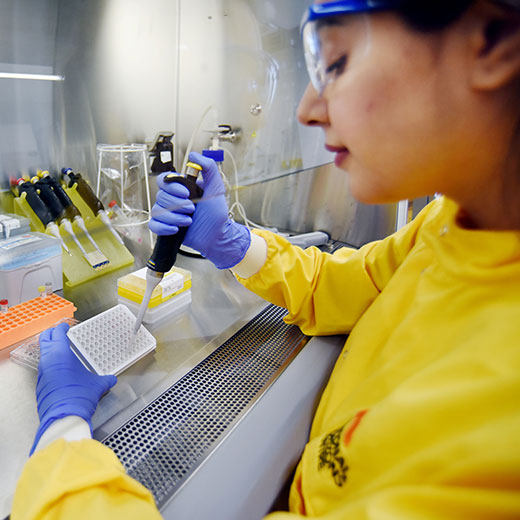
This lab offers facilities for drug development, vaccine manufacturing, and bioproduction. With cell culture suites and bioreactors, it supports research in regenerative medicine, biologics, and innovative process scale-up for biomanufacturing applications.
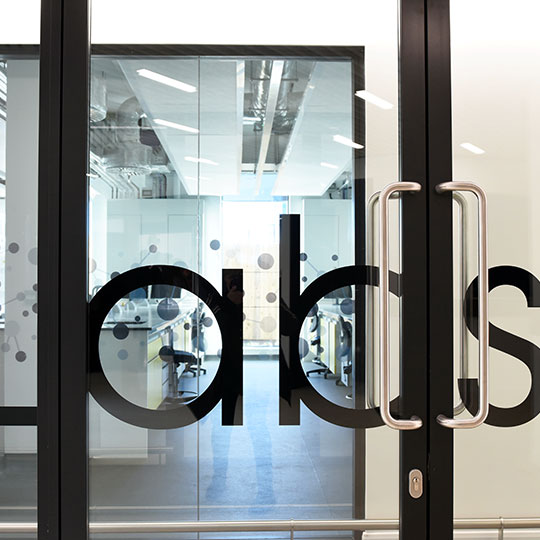
We offer a flexible or fixed-term models for the hire of lab and desk space where you can work alongside our researchers and other companies based at the NHC, such as FUJIFILM Diosynth Biotechnologies. Ideal for companies of all sizes, from start-ups, SMEs through to industry.
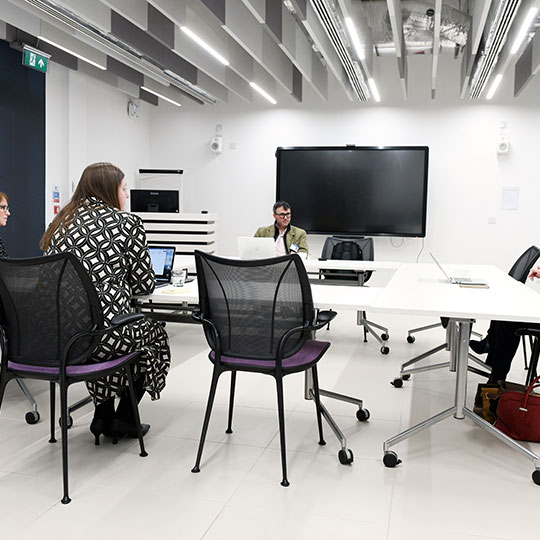
The NHC offers meeting and event spaces from small groups through to larger events. Our flexible space offers free Wi-Fi, multiple seating layouts, and catering options, making it ideal for corporate events and workshops.
Collaborate with leading scientists and leverage our state-of-the-art facilities to accelerate your R&D.
Whether you're developing new products, advancing research, or scaling up processes, our facilities are tailored to meet your unique business needs.
Situated in Darlington's life sciences hub, with excellent transport links and on-site parking, NHC is easily accessible for businesses across the UK.
Looking for support with innovation, training, or facilities hire? We're here to help your business reach new horizons. From cutting-edge research to bespoke training and state-of-the-art facilities, we offer a range of solutions tailored to your needs. Get in touch today to explore how we can work together to achieve your goals.